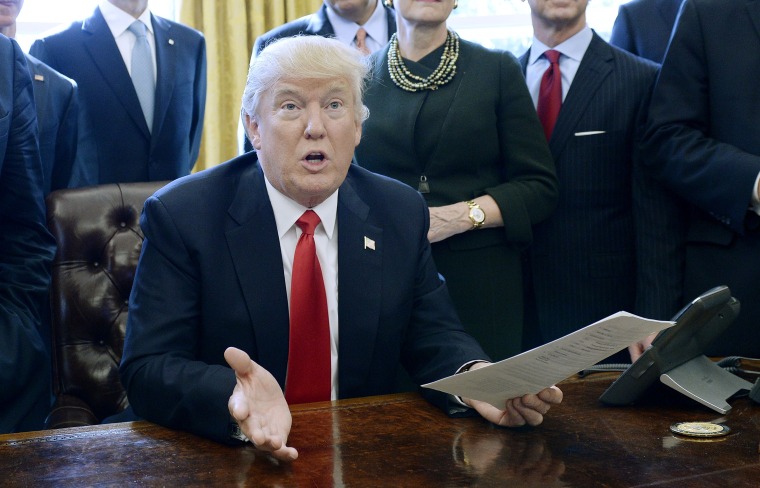There are some instances in American history of presidents using their pardon power in controversial ways. For example, on Christmas Eve, 1992, in one of his last acts after losing his re-election bid, then-President George H.W. Bush pardoned several officials at the center of the Iran-Contra scandal. The fact that the Republican used the cover of a holiday suggested he knew his actions were tough to defend.
But as is too often the case, Donald Trump is breaking new ground in this area. This morning, the president announced plans to give a "full pardon" to right-wing provocateur Dinesh D'Souza, whom Trump believes was "treated very unfairly by our government!"
Preet Bharara, the former U.S. attorney for the Southern District of New York, whose office prosecuted D'Souza, wrote on Twitter that D'Souza got a fair shake from the justice system."The President has the right to pardon but the facts are these: D'Souza intentionally broke the law, voluntarily pled guilty, apologized for his conduct & the judge found no unfairness," Bharara wrote. "The career prosecutors and agents did their job. Period."D'Souza now claims he was targeted by the Justice Department for his political leanings, even though he admitted in court that he broke the law and expressed remorse for it.
It's that last point that makes today's move so absurd. D'Souza, whom Trump has no doubt seen on television many times, was caught up in a clumsy campaign-finance scheme in which he illegally used straw donors to support Wendy Long, a Republican candidate who had no realistic chance of success against Sen. Kirsten Gillibrand (D-N.Y.) in 2012. As part of the gambit, D'Souza convinced a group of allies to contribute to Long's campaign, and he reimbursed them for the donation.
D'Souza got caught, pleaded guilty, expressed "deep regret" for his actions, and was sentenced to five years of probation, including eight months living under supervision in a "community confinement center."
Now, however, Trump expects us to see him as some kind of victim.
Making matters worse, of course, is the broader pattern of abuses. The president pardoned Joe Arpaio, apparently because Trump saw him as a political ally. He pardoned Kristian Saucier and I. Lewis "Scooter" Libby as part of some ham-fisted messaging strategy.
He issued a posthumous pardon to boxing legend Jack Johnson, apparently because some celebrities asked him to.
As best as I can tell, the president isn't using the traditional pardon process through the Justice Department; Trump is just winging it based on his political whims.
What's more, none of this is happening in a vacuum. On the contrary, the Russia scandal continues to hang over this White House; Special Counsel Robert Mueller has already issued several indictments and secured several guilty pleas; and Trump has an incentive to let possible witnesses against him know that he has a pardon power that he's comfortable abusing in support of those with the right political connections.
In other words, the message to those caught in Mueller's web isn't subtle: "Remain loyal to Trump World and the president will take care of you."
Throughout much of the Obama presidency, much of the right insisted that the Democratic president was a lawless authoritarian, with no use for the rule of law, who needed to be replaced with a Republican who recognized the importance of law and order. That rhetoric appears awfully ironic now.
